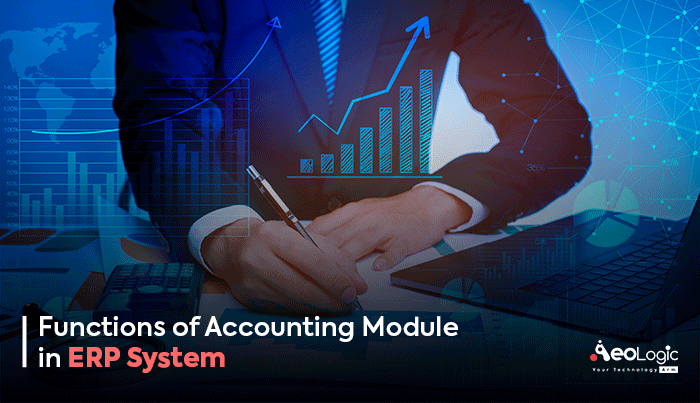Enterprise resource planning (ERP) systems have become a very powerful tool for businesses over the past decades. An ERP solution automates business processes. An ERP system centralizes the database for all financial and operational information all across the company. It pulls the data from a number of modules which helps to build various departments, from accounting to supply chain to human resources.
What is Finance?
Finance or an accounting department is a core department for any organization responsible for releasing the funds or credits to run the business operations in a smooth and satisfying way. They are responsible for acquiring the funds or managing the funds or managing the expenses to run the organization so that any organization should run out of cash at any point in time.
What is an ERP System?
Enterprise Resource Planning (ERP) system is a software solution to support and integrate the functional area of business processes that includes production planning, manufacturing, logistics and warehousing, procurement of goods and services, management, finance, accounting as well as human resource.
Finance Module Functionalities
The Finance module covers functionalities such as:
- Management of general analytic, MIS report, ledger report, GST return, Outstanding and TDS computation.
- Multilevel charts.
- Virtual account management.
- Ability to work on several fiscal years finance sheet at the same time.
- Several modes of entry by documents, quick entry in list mode and models.
Automation –
As per the requirement, AeoLogic can develop numerous automatic features such as automatic description, due dates computation, third-party payments management, GST computation, automatic counterparts, balance and creation of accounts while imputing entries.
Numerous Controls-
The finance module offers various levels of controlling rights and managing them. Rights can be defined for multiple company levels, group level, user level, and role level. The features will also enable to control entries at the account, journal or product level.
Integration of Modules-
The finance module can be completely integrated into other modules such as sales, production, purchases, projects, Human Resources. It enables the management of projects by integrating them with analytical accounting.
Reports
The finance module can have a comprehensive list of reports:
- Balance, ledgers, accounting journals, bill books, reminder, and more.
- Preliminary state of GST declaration.
- Balance sheet, income statement, and intermediate balance management.
- Comparative multi-exercises.
- Analytic state, budgetary state, reporting state, and cash control.
- Customization and creation of personalized documents, through OpenOffice integration.
Analytic
Analytic features include:
- Multilevel analytic and unlimited journals.
- Ventilation of unlimited and automated accounting moves according to numerous criteria, with the possibility of re-ventilation.
- Interrogations and editions.
- Control of cost system, management by business and interaction with projects, timesheet, sales, purchases, and production.
- Support of analytical OD.
Budget
The finance module offers a clear understanding of budgets on products, charges, stocks or treasuries, budgetary reports, and a wizard to create endowments.
Notification
By incorporating notification with accurate tracking and reporting, no payments will be gone missing. With the help of notifications, you can ensure the payment is done on time.
Petty Cash
This could be more problematic compare to other financial activities, this is a small amount of money used for small expenditures without the need to write a cheque. Thus, enabling the petty cash feature allows you to verify the details against cash receipt/bill settlement/cash request/cash issue /.






